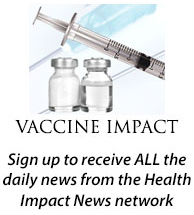
By Dr. Mercola
Excerpts:
Long vilified butter is making a comeback. Butter consumption in the US has reached its 40-year peak, according to new data from the dairy industry. The butter boom, at least in part, has been attributed to a shift in consumer preferences away from processed foods and back toward natural foods.
It has also helped that USDA began the process of banning trans fats from the American food supply last fall.
During the past decade, Americans have increased their butter intake by 25 percent—but it’s really taken off over the past five years. Butter consumption has now reached 5.6 pounds per capita, compared to 4.1 pounds in 1997. While butter hit its 40-year high, margarine fell to its 70-year low.
Even Unilever Foods (maker of Country Crock margarine) just added real butter to Rama, their most popular spread in Germany, in order to rescue dwindling sales.
After decades of believing the myth that butter clogs arteries and causes heart attacks, people are now beginning to realize that partially hydrogenated vegetable oils, margarine, and shortening, the so-called “heart healthy spreads,” are the culprits—not wholesome saturated fats like butter. The now discredited “lipid hypothesis” is thankfully going the way of bloodletting and lobotomies. It’s time to bury the myth that butter is bad for you—for good.
Disease Rates Through the Roof Since the Era of Butter Bashing
The evidence is incontrovertible: When you cut out or radically decrease the fat in your diet, you become fatter and sicker than your ancestors. Why? Because margarine and similar hydrogenated or processed polyunsaturated oils are far more detrimental to your health than saturated fat.
Besides these “fad oils,” sugar is another primary co-conspirator in the destruction of your cardiovascular health. Excess dietary sugar creates insulin and leptin resistance, which can lead to obesity and inflamed arteries—which both raise your risk for a heart attack.
A review from Cambridge University, just published in the journal Annals of Internal Medicine, is the latest analysis to confirm the absolute lack of evidence that consuming saturated fat leads to heart disease. They also found no basis for guidelines that advise increased consumption of polyunsaturated fats to lower your cardiac risk, calling into question all of the standard nutritional guidelines related to heart health.
The low-fat and fat-free craze has been a damaging nutritional detour in the West, because removing the fat from foods opened the door for the addition of large quantities of refined sugar, sodium and other unhealthy chemicals in attempts to make processed foods taste good. Sugar, trans fats, and processed vegetable oils have created the perfect storm of disease for decades.
Butter Is a Health Food!
Butter has been a dietary staple of many cultures for thousands of years, with no evidence of adverse health effects. For millennia, people around the globe prized butter for its abundant health benefits, not to mention culinary appeal. Butter, especially raw organic butter from grass-pastured cows, is a wealth of nutrition and nourishing fats. Research points to the fact that butter may have both short-term and long-term benefits for your health.
A Swedish study found that fat levels in your blood are lower after eating a meal rich in butter than after eating one rich in olive oil, canola oil, or flaxseed oil. The scientists’ main explanation is that about 20 percent of butterfat consists of short- and medium-chain fatty acids, which are used right away for quick energy and therefore don’t contribute to fat levels in your blood.
The other oils (olive oil, canola, flax, etc.) contain only long-chain fatty acids. Therefore, a significant portion of the butter you consume is used immediately for energy—sort of like a carbohydrate. The primary nutrients found in butter are outlined in the table below. For more information on the health benefits of butter, refer to this classic article “Why Butter is Better” by the Weston A. Price Foundation.
- *Vitamin A in the most absorbable form
- Lauric acid
- Lecithin (necessary for cholesterol metabolism and nerve health)
- Antioxidants
- *Vitamin E
- Vitamin K2
- Wulzen Factor: hormone-like substance known to prevent arthritis and joint stiffness (destroyed by pasteurization)
- *Fatty acids, especially short- and medium-chain in the perfect omega-3 to omega-6 balance
- *CLA (Conjugated Linoleic Acid): anti-cancer agent, muscle builder, and immunity booster
- Vitamin D
- Minerals, including selenium, manganese, chromium, zinc, and copper
- Iodine in a highly absorbable form
- Cholesterol
- Arachidonic Acid (AA): brain function and healthy cell membranes
- Glycosphingolipids: fatty acids that protect against GI infections
*The highest amounts of CLA and omega-3 fats come from cows raised on grass pastures. Their butter is also 50 percent higher in vitamins A and E, and 400 percent higher in beta-carotene, giving grass-fed butter its deeper yellow color.
Beware of ‘Monsanto Butter’
Not all saturated fats are nutritionally equal, and butter is no exception. Just like other forms of dairy, butter’s nutritional value depends on how the animals are raised. For example, the fatty acid composition of butterfat varies according to the animal’s diet. The very best-quality butter is raw (unpasteurized) from grass-pastured cows, preferably certified organic. The next best is pasteurized butter from grass-fed cows, followed by regular pasteurized butter common in supermarkets. Even the latter two are a healthier choice than margarines or spreads.
Beware of “Monsanto Butter,” meaning butter that comes from cows fed almost entirely genetically engineered grains. This, unfortunately, makes up the majority of butters you typically see on grocery store shelves. Conventionally raised cows are typically fed GE corn and soy. However, some farmers fatten up their feed with additional sugar derived from GE sugar beets and cottonseed.
Read the full article here: http://articles.mercola.com/sites/articles/archive/2014/03/17/butter-consumption.aspx
 |
 |








